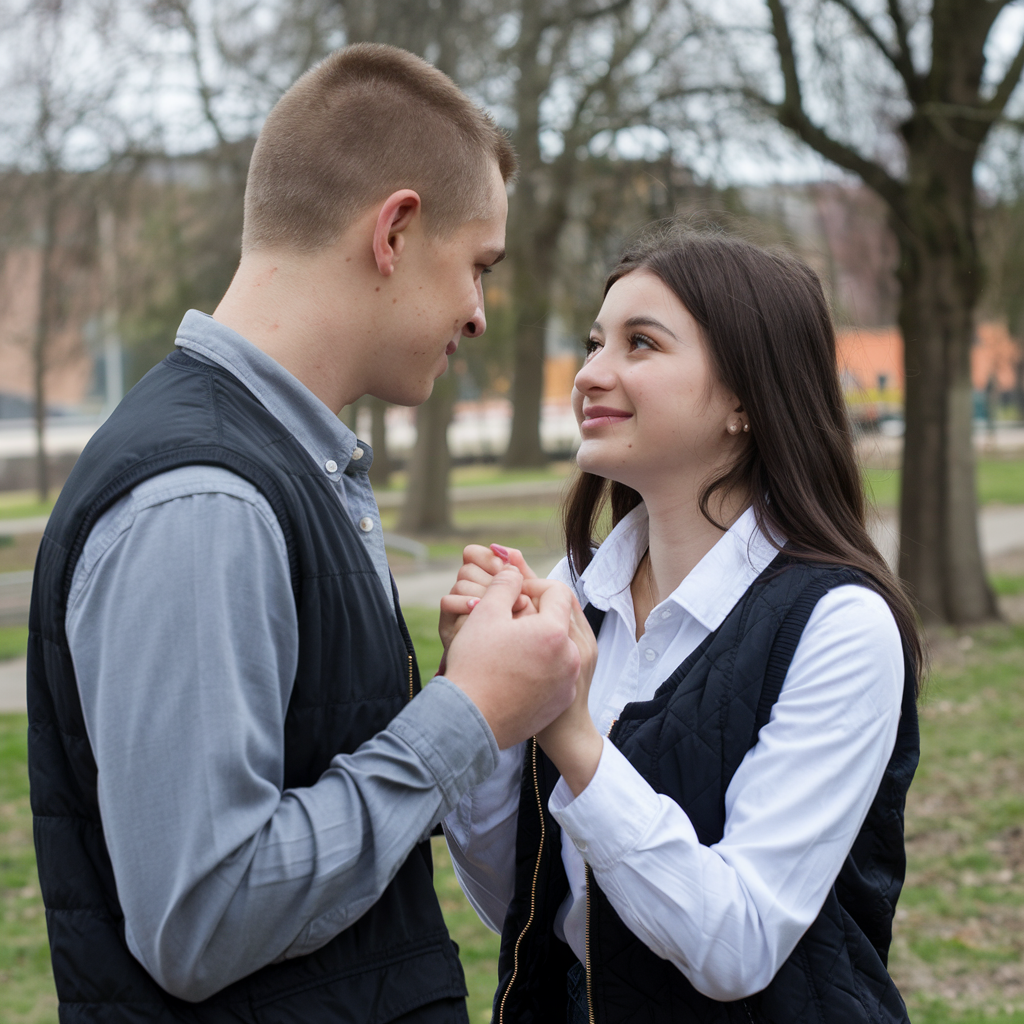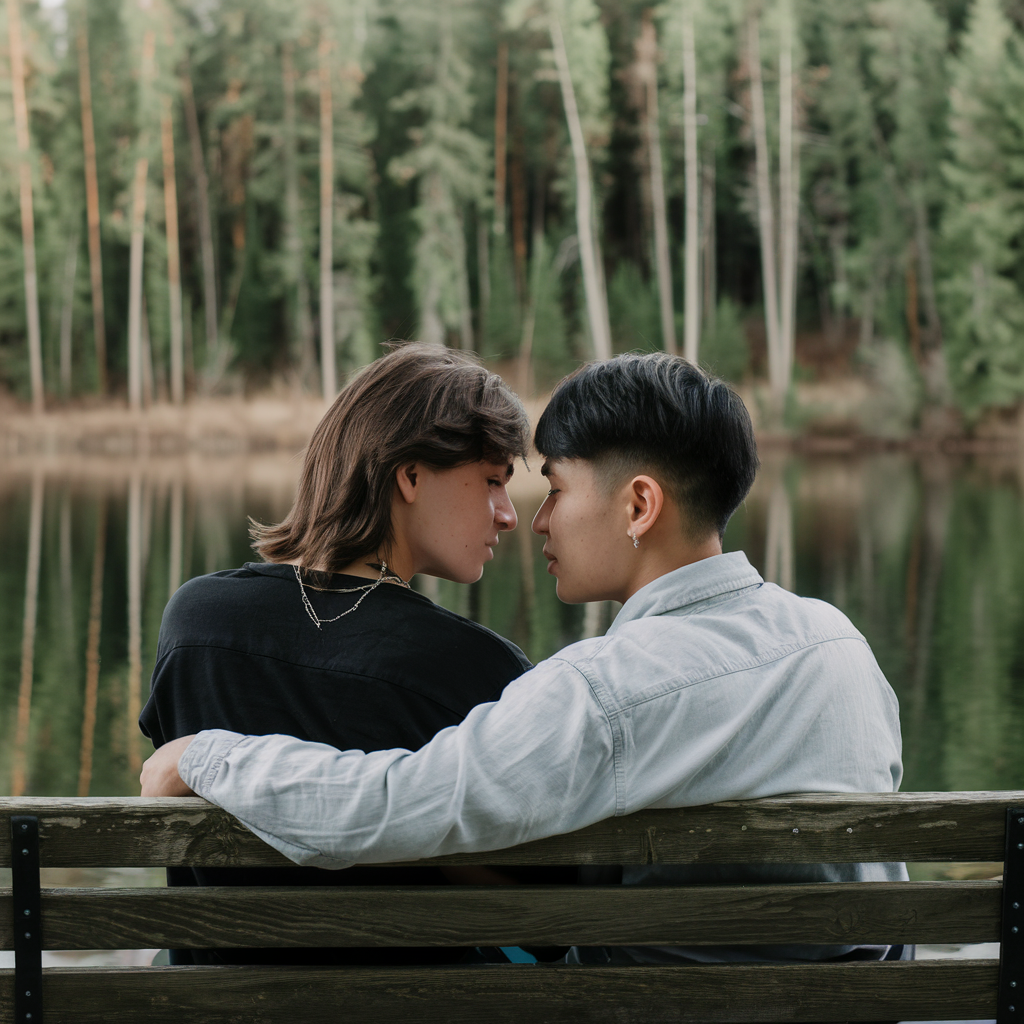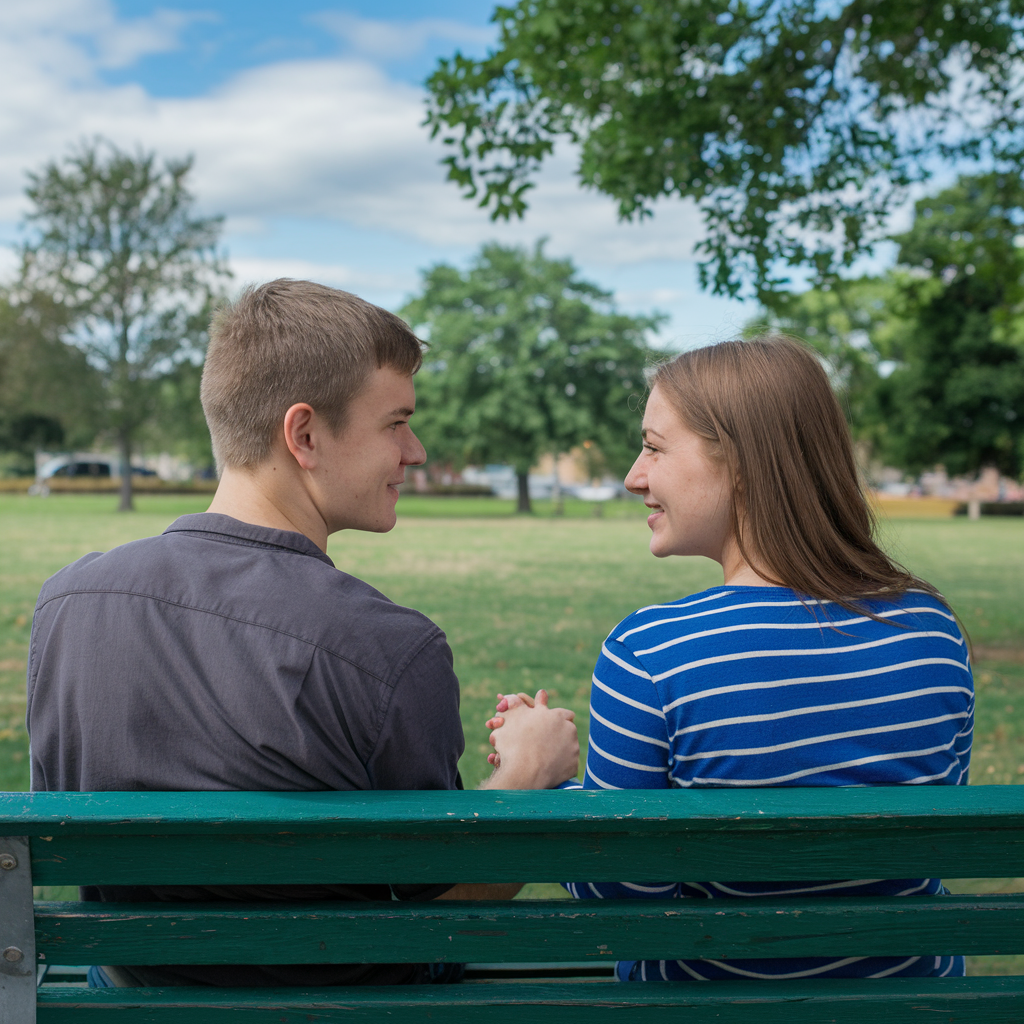Key points
Here are 3 bullet points about the average age for first boyfriend:
- Many girls start dating around middle school like in 6th or 7th grade, so around ages 11-12.
- More serious dating happens in high school around freshman or sophomore year, ages 15-16.
- By junior or senior year, most girls have probably had at least one boyfriend, age 18.
Contents
- 1 Key points
- 2 The Average Age for First Boyfriend
- 3 Statistical Analysis of Average Age
- 4 Personal Narratives
- 5 Influence of Peer Pressure
- 6 Real-life Examples
- 7 Consequences of Early vs. Late First Boyfriend
- 8 Emotional and Psychological Effects
- 9 Academic and Social Implications
- 10 Long-term Relationship Patterns
- 11 Parental and Societal Roles
- 12 Societal Expectations and Media Influence
- 13 Frequently Asked Questions (FAQ)
The Average Age for First Boyfriend

Most teenagers get their first boyfriend around age 15 or 16. Studies have found 15 is about average for girls and 16 is common for boys. But it varies a lot between different people.
Statistical Analysis of Average Age
Researchers looked at tons of data and surveys from teens. They found girls usually date a bit earlier than boys. Normally boys take more time to get comfortable with the whole dating scene. The statistics show it pretty clear.
Factors Influencing the Age of First Boyfriend
Family is a big one – kids from stricter homes might wait longer. Personality plays a role too. Shy types wait while more outgoing kids dive right in. Your friends also influence you – if they’re all dating, peer pressure can push you into it sooner. Plus society sets some loose rules about what’s proper that teenagers follow.
Cultural Differences and Norms
Culture impacts age of first date a lot. Some areas are more traditional than others. Rural communities commonly expect later dating than cities. Religions sometimes have views too that delay romantic relationships. Ethnic groups also see dating at different ages as normal. So where you grow up shapes what’s considered timely for first love.
Psychological Development and Readiness
Teenagers progress emotionally at their own pace. Maturity levels vary widely. More intelligent kids may date earlier since they’ve grown up quick. Others aren’t comfortable with romance until they feel fully prepared. At the end of the day, psychological readiness decides if an individual is ready for a boyfriend before anything else.
Impact of Family Dynamics
How close families are affects dating age, and family problems could make kids seek love elsewhere sooner. Strong parent relationships provide a nice example. Say a father flirts constantly with mom – kids may feel secure trying relationships because of it. But if parents fight or divorce, kids often date to fill voids. Family plays a big part in shaping teenagers’ ideas about dating.
Personal Narratives

And like, peer pressure was a big deal back then. Actually, I remember hanging out with my friends almost every day after school. We would always try to impress each other with how “cool” we thought we were. But looking back, we were just a bunch of kids trying to figure it all out.
Influence of Peer Pressure

You didn’t want to be the only single one when all your friends were going out. It feel like you have to have a boyfriend or girlfriend to fit in. Hopefully looking back, we can see that’s not really true and being yourself is what really matters.
Real-life Examples
Like this one time in ninth grade, my friend Sally was dating this boy Tom. But then her other friends started saying he was lame. So she broke up with him to be cool like them instead. That emotionally messed her up because Tom was actually really nice. It just shows how much outside opinions can mess with your relationships.
Consequences of Early vs. Late First Boyfriend

Getting into your first relationship too early can cause some issues. Kids who date real young sometimes miss out on other stuff, like school activities or just hangin’ out with friends. But if you wait until later, you gotta have more life experience to know what you want. It’s definitely smart to focus on school and friends first, and then boys can come later hopefully.
Emotional and Psychological Effects

Breakups are always tough, especially the first one. If it happens too early, it can really mess with your head for awhile. Getting sad over boys is kinda normal, but you don’t want it to control your life or make you miserable. Hopefully with time you’ll get over it.
Self-Esteem
Your confidence can go up or down depends on the relationship. Some girls feel real good having a boyfriend, but it’s not worth it if he makes you feel bad. You always gotta remember that you’re awesome with or without a guy.
Academic and Social Implications
Dating in high school can distract you from school sometimes. It’s easy to slack off on homework if you’d rather text your boo. Also, fights with a boyfriend might get in the way of friend time. So it’s best not to let a guy consume your life and come before school or friends.
Long-term Relationship Patterns
Girls who have their first love real young sometimes think that’s how it always is. But relationships change as you grow up. The drama fades and it’s more about trust and respect. So don’t stress too much if your early romances don’t last – that’s normal! As long as you learn from each one, you’ll be ready for something healthy and mature later on.
Parental and Societal Roles
Parents play a big role during this time! Parents actually watch kids closer as they become teenagers, because this is when kids start wanting more freedom. But it’s also important for parents to give guidance without being too strict. Parents gotta have honest talks with their kids actually – and listen without judgement too. Hopefully this helps kids make good choices, rather than doing stuff just to rebel!
Guidance and Communication
Guidance is important, but parents also need to actually communicate openly with their teen. Teens going through a lot of changes, and might feel alone. Parents should check in regularly, so teens knows they have someone to talk to – even about awkward stuff! Having open conversations builds trust between parent and child. Less lectures, more listening is better for relationships.
Societal Expectations and Media Influence

Society says romance is supposed to happen in high school – but everyone develops differently. Movies and shows depict relationships in unrealistic ways sometimes. This can make teens worried if they’re not dating yet. But like, every person grows at their own pace. Comparing yourself to others often does more bad than good!
Support Systems and Resources
Good friends are important during these years. Friends going through similar things can support each other. Schools should make sure counselors are available too, for private chats.
Counselors see so many teens, they know it’s all normal. It’s good for teens to know where to turn, if they’re feeling down or have questions.Sometimes talking things through with someone else helps gain better perspective.
Frequently Asked Questions (FAQ)
Do soulmates truly find each other or do soul ties sometimes lead relationships astray?
There’s a lot of different theories on love, soulmates, and soul ties. Some people think your soulmate is out there waiting while others say we can form unhealthy soul ties with the wrong people. Experts like Dr. Michale Tobin and therapist Jennifer Silvershein Teplin say it’s complicated – relationships take work no matter what.
What kind of kisses help build good connections between people in a relationship?
Kissing is natural way for humans to bond. Relationship experts say what matters most is the intimacy between two people, not so much the kissing itself. Small acts of kindness and truly listening to someone is what helps build strong relationships.
How young is too young to have a 'boyfriend' or 'girlfriend' when you're basically still a kid yourself?
Most experts agree that having a ‘official boyfriend or girlfriend’ in kindergarten or early elementary school is definitely too young, since kids that age are still learning how to form friendships. But holding hands or sharing kisses on the playground is normal exploring for kids. It’s about emotional maturity, not age.
What kinds of products or food are associated with relationships or being in love?
Hallmark cards, flowers, chocolates and fancy dinners usually come to mind when people talk about love! But the truth is, what really matters is the time two people spend together. Sharing laughs over pizza or making cookies can be just as meaningful as going out, if you connect with someone on a deeper level.
How can parents guide their kids through early relationships without going overboard?
The key is communication, not dictatorship. Talk with your kid, listen without judgment, and share your own valuable experiences. Offer support through the ups and downs, but let them learn through their own experiences too. Hovering or reacting strongly will only push them away. Trust and understanding works much better than strict rules.
If someone believes they've found their soulmate at a young age, like in high school, what's the likelihood it will actually last?
It’s possible but unlikely, statistics show. Most relationship experts agree that people change dramatically from teens to adulthood, so it’s hard to really know yourself or another person at that age. However, some high school sweethearts do go the distance. As long as both people are committed to growing together, anything’s possible.
What are some reasons why a teenager might believe a relationship didn't work out even if it was fairly new?
Teenage relationships tend to be more intense but also shorter. Hormones run high and emotions feel overwhelming. It’s easy to think you’ve found ‘the one’ when you’re young. But there’s also peer pressure, fear of missing out on dating others, and not fully knowing yourself yet. So what felt like love at 14 may not last beyond high school.
How can someone know if they are ready for a serious relationship in high school versus just wanting to experience infatuation?
There’s no definite answer, but signs include being able to commit time to a partner, communicate well, work through disagreement, and not drop everything else for a new flame. Infatuation tends to fizzle quicker. A serious relationship requires understanding yourself, the other person, and dedicating effort over the long haul – not easy for most teens just starting to spread their wings.
What kinds of relationship-related issues might kids and teens experience differently than adults?
Kids may feel stress over ‘labels’, peer pressure, and fears of being left out. Hormones run high, so emotions feel more extreme. Communication skills are still developing too. Adults have more life experience under their belt to draw from. But the core parts of relating – respect, trust, honesty – remain just as important whenever you start forming bonds with others.
Is the 'puppy love' or 'first love' most people experience as teenagers just practice for future relationships, or can those early bonds still hold meaning?
Both are true for different people. While stats say most teen romances don’t last, those early relationships are how many people learn about forming intimacy. And just because a high school love didn’t last ’til death doesn’t mean the memories and lessons still can’t hold value or meaning in a person’s life story.

I’m Kary Walters, a wedding planner and writer with a passion for helping couples stay together and achieve their relationship goals. With over a decade of experience, I specialize in self-improvement and have worked with individuals & couples facing challenges.